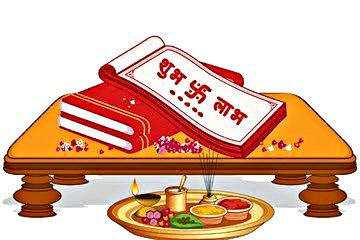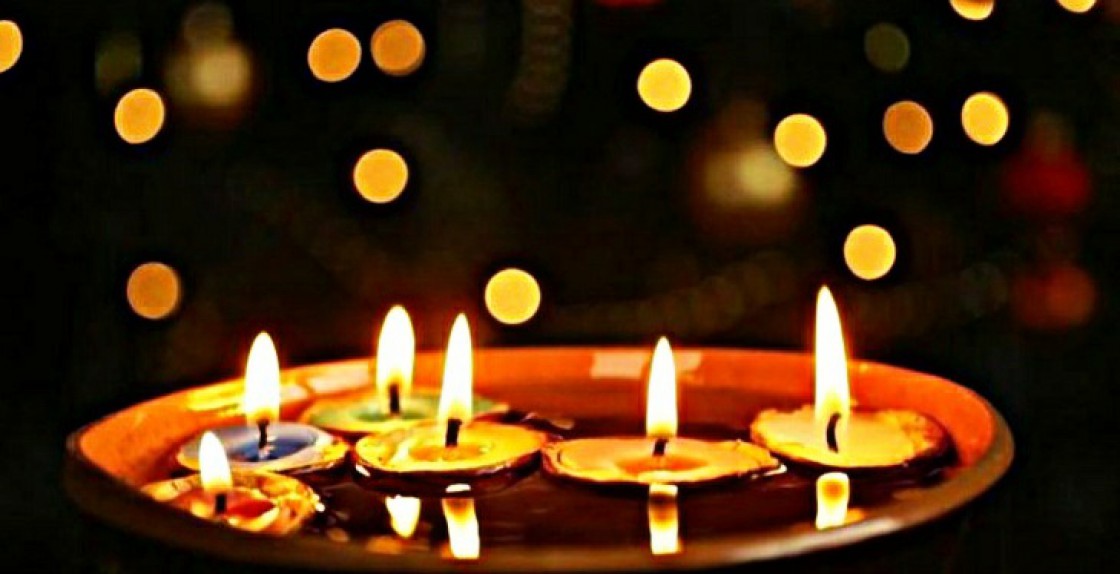New Year (नूतनवर्षम्) is celebrated on 1st January in almost every part of the world as per the Christian tradition, where the Gregorian calendar is followed. Most of the countries follow the Gregorian calendar with 12 months in a year, the year comes to end on December 31st & began on January 1st. This Gregorian calendar is practiced in most of the countries. Even in India we use this calendar along with the Indian national calendar (the Shalivahana Shaka calendar) hence, New Year is also celebrated on January 1st. But still, different countries observe their traditional or religious New Year’s Day according to their own customs.
India is a country where people of various cultures, languages, castes & religions live together follows both Solar & Lunar calendar systems. In Hinduism, New Year is celebrated as per the Vedic time. In India there are numerous days in a year when the New Year is celebrated. Every state in India celebrates the New Year in its own way, following traditions & customs & are part of that particular region entirely. The regions following Solar Calendar celebrate New Year on the first day of Vaishakha (वैशाखः) month; Baisakhi in North & Central India, Rongali Bihu in Assam, Puthandu in Tamil Nadu, Vishu in Kerala, Pana Sankranti in Odisha, Poila Boishakh in Bengal, Vaishakhi/Baisakhi in Punjab, Navreh in Kashmir. The regions following Lunar Calendar celebrate New Year on the first day of Chaitra (चैत्रः) month of the year; Gudi Padwa in Maharashtra, Yugadi or Ugadi in Telangana, Karnataka & Andra Pradesh, Cheti Chand by Sindhis. While Gujarat celebrates New Year on the first day of Kartika (कार्तिकः) month i.e., the day after Diwali.

Significance of Gujarati New Year (नूतनवर्षम्) –
As per the Hindu Calendar (पञ्चाङ्गम्) Gujarat follows the Lunar cycle based on the Vikram Samvat. According to Gujarat, Kartika (कार्तिकः) is the first month of the year & the New Year in Gujarat falls on the 1st bright fortnight of Kartika (कार्तिकः शुक्लपक्षे ०१) month. Gujarati New Year is known as “Bestu Varsh” (બેસતું વર્ષ) which literally means “New Year” (नूतनवर्षम्). It is celebrated every year, right after Diwali.
This day marks the beginning of Gujarati’s new fiscal year. This is the time when the businessmen & traders start their new account books after closing the old one. On this day, Goddess Lakshmi is worshipped with puja rituals along with the worship of account books. This ritual is done with the belief that it would help make the New Year more prosperous & profitable. During this ritual, a Swastika (स्वस्तिकः) is marked at the beginning of the book below which, Shubh (शुभ) (Auspicious) & Labh (लाभ) (Beneficial) are written; to make the forthcoming financial year profitable. New account book is opened during this puja ritual, in the presence of Goddess Lakshmi to seek her blessings. In Gujarati culture, account book is called Chopda & this puja ritual is known as Chopda Pujan (चोपडा पूजनम्). Though the businesses are closed from Diwali & re-opens on the fifth day of the bright fortnight (कार्तिकः शुक्लपक्षे ०५ ) (लाभपञ्चमी), the whole staff & the family members are invited for the Chopda Pujan (चोपडा पूजनम्).
According to the Vaishnavism, Gujarati New Year or Bestu Varsh (બેસતું વર્ષ) is corelated to the Govardhan Puja. According to the historical account, Lord Krishna convinced the people of Gokul to not make abundant offerings to Lord Indra. He taught the farmers & shepherds, that their true Dharma (Duty) (धर्मः) is towards the hills & cattle which gave them supplies & resources. The people then started praying Govardhan Hill & the cows. Knowing this, Lord Indra got furious & discarded his anger upon the people of Gokul. He started flooding Gokul with nonstop rains which continued for seven days & seven nights. Following this, Krishna lifted the Govardhan mountain with his little finger to provide shelter & protection to the people & the cattle. Indra then realised his mistake & apologized. The tradition to perform Govardhan Puja is believed to have continued & is celebrated to this day. On this day Vaishnavas perform puja rituals & worship Lord Krishna, Govardhan mountain & offers food to Lord Krishna. Thus, this day is also well-known as Govardhan Puja or Govardhan Annakut.

Aspects for Gujarati New Year (नूतनवर्षम्) -
From the 11th day of dark fortnight of the Ashvina month (अश्विनः कृष्णपक्षे ११) Gujarati starts celebrating festivals. Before this day they clean whole house & decorate the house with lights, etc. & on the New Year’s Day, Gujrati houses are cleaned & decked in the festivity. People wake up early in the morning & visit temples to give an auspicious start to the New Year (नूतनवर्षम्). After which, they proceed to visit elders & seek their blessings. This day is celebrated by lighting up oil lamps, making rangoli, bursting fireworks, eating sweets & snacks, dressing up in new clothes & meeting friends & family.
In the early morning the threshold of the house is cleansed with water & a Swastik (स्वस्तिकः) mark is made on it in order to bring prosperity & positivity to the house on this day. Rangoli is also made outside the house to attract positivity, Goddess Lakshmi & wealth. The house is adorned by lightening the oil lamps which helps to improve concentration, blood circulation, calms the mind, the lamp rays produce the magnetic force & attracts positivity.
We have seen that during Diwali time or even during any Hindu New Year or festival, many messages get viral giving knowledge of not spreading air pollution by bursting fireworks so that the air pollution gets reduced, etc. Air pollution is the serious issue in India. According to the research, 51% of the air pollution is caused by the industries, 27% of the pollution is caused by the vehicles, 17% is caused by burning the crops & only 5% is caused by the fireworks. So, my question is, whenever any Hindu festival or New Year arrives why then only such messages gets viral? Why we do not get such messages during any other religion’s new year or festivals? As air pollution is worse in India, then please try to stop or lessen industrial pollution or stop using vehicles instead, there are many other ways to stop air pollution then prohibiting only “Hindus” from busting fireworks. Bursting fireworks during Gujarati New Year (Bestu Varsh) (બેસતું વર્ષ) is slightly connected to the science too. Kartika (कार्तिकः) month falls in October-November, which is after monsoon season & a starting of winter season. During monsoon season, many mosquitoes & insects takes birth & till October the ratio of mosquitoes gets double or triple. So, while burtsting fireworks during Diwali & Gujarati New Year (Bestu Varsh) (બેસતું વર્ષ), due to the smell of fireworks many mosquitoes & insects die. Because of this reason one should burst fireworks on Gujarati New Year (Bestu Varsh) (બેસતું વર્ષ).
Thus, Diwali in Gujarat marks the commencement of the Gujarati New Year (બેસતું વર્ષ) among locals. Gujarati New Year (બેસતું વર્ષ) is celebrated with immense joy, happiness & enthusiasm in the entire state of Gujarat. On the Gujarati calendar, the Kartika (कार्तिकः) month of Vikram Samvat (विक्रमः संवत्) as the first month & not Chaitra (चैत्रः) or Vaishakha (वैशाखः) unlike several other Indian states. The ongoing Gujarati year is Vikram Samvat 2077 (विक्रमः संवत् २०७७).
चैत्रः कृष्णपक्षे १४, २०७७
